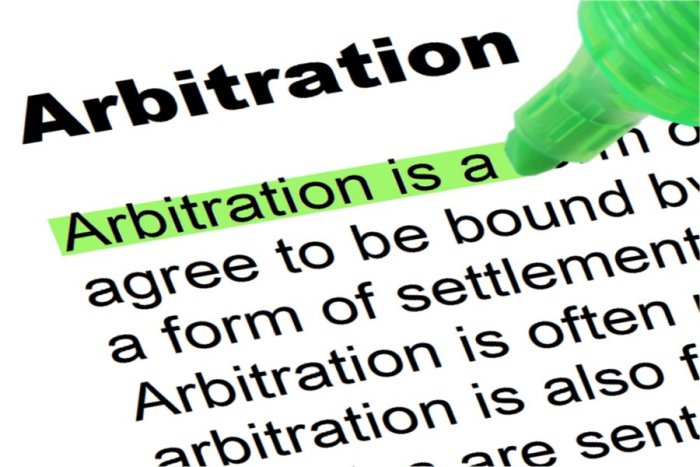Arbitration Clauses: Is There Change Afoot?
Arbitration Clauses: Is There Change Afoot?
Some contracts promise in advance that any disagreements must be handled by private judges, or “arbitrators,” instead of the public courts. Such agreements are called “arbitration clauses.”
Arbitration clauses may ask consumers to give up the right to bring “class actions” as well as individual claims. This means consumers with identical or very similar disputes may not act together against the business.
In 1925, Congress passed a law saying arbitration clauses were valid. The lawmakers said the law regarded disagreements among businesses – not those between a consumer and a business. Today, though, when a business contracts with a consumer and puts an arbitration clause in the contract, courts up to the U.S. Supreme Court have said that consumers must go to arbitrators, and have given up their right to public courts and juries.
Arbitration clauses have multiplied over the past 10 years. They are buried in form contracts for all kinds of consumer products and services. In the consumer financial world alone, for example, the Consumer Financial Protection Bureau (“CFPB”) found that “hundreds of millions” of consumers use financial products or services subject to arbitration agreements, such as credit cards, checking accounts, prepaid cards, and payday loans.
Arbitration Clauses Injure Consumers
Arbitration clauses seriously harm many consumers. Yet it is nearly impossible to avoid signing them. Some reasons forced arbitration harms consumers are:
- Consumers are denied court hearings and jury trials
- Case outcomes are usually kept private, or “secret.”
- Business entities are “repeat players.” Systemic biases favor them.
- Individual arbitrations can be very costly to consumers, who may have no lawyer in small-dollar, single-case injuries.
- Corporations gain at consumer expense. If a business with a million customers charges each $30 too much, for example, the business wrong-doer can keep nearly all of the $30,000,000.
Changing Tides?
Lately, many state and federal government representatives, judges, politicians, and interest groups have been speaking up about arbitration. Voices opposing universal “forced arbitration” have grown louder.
Federal Actors:
Some federal actors issuing actual or proposed rules against arbitration include:
- Congress required the CFPB to study arbitration, and authorized a CFPB rulemaking.
- The CFPB proposed a rule preserving class actions in court.
- Military lenders, the Financial Industry Regulatory Authority, the National Labor Relations Board, and the Department of Labor have all restricted the availability of arbitration.
- The Department of Education and the Centers for Medicare & Medicaid Services, and the CFPB have recently proposed restricting forced arbitration.
Public Opinion:
Changes to the Supreme Court and increasing public discussion have created a “mood” of backlash against arbitration. One national poll said consumers favored court class action rights by 3 to 1.
An Uncertain Future
Arbitration will continue to be a hot button political and legal topic in the months and years to come. We will report on any changes—good or bad—that may impact consumers.
Approximately 33,000 tire-related crashes occur each and every year, resulting in about...
The Ford C-Max Energi Electric car is being blamed for starting more...
“The findings in this analysis conducted for The Safety Institute are disturbing,...

